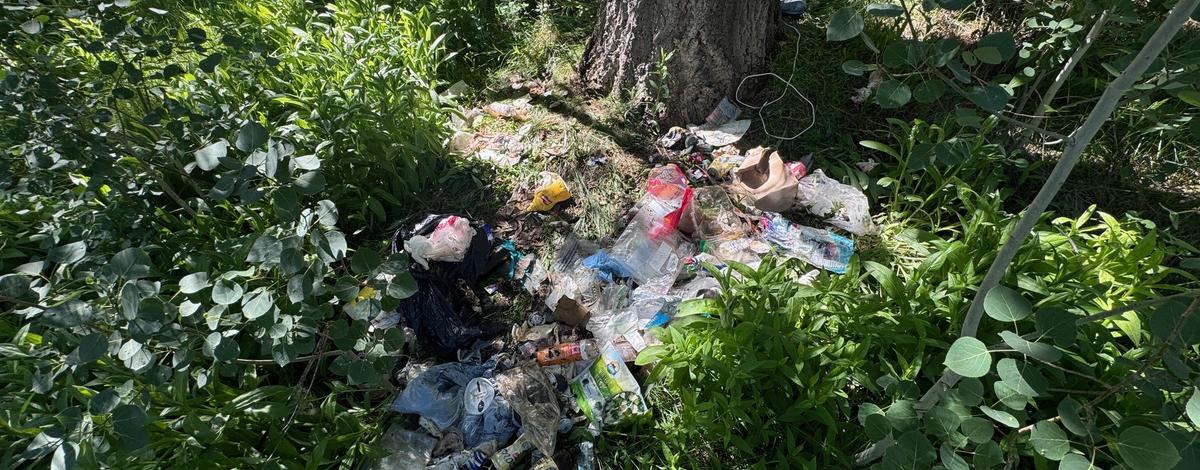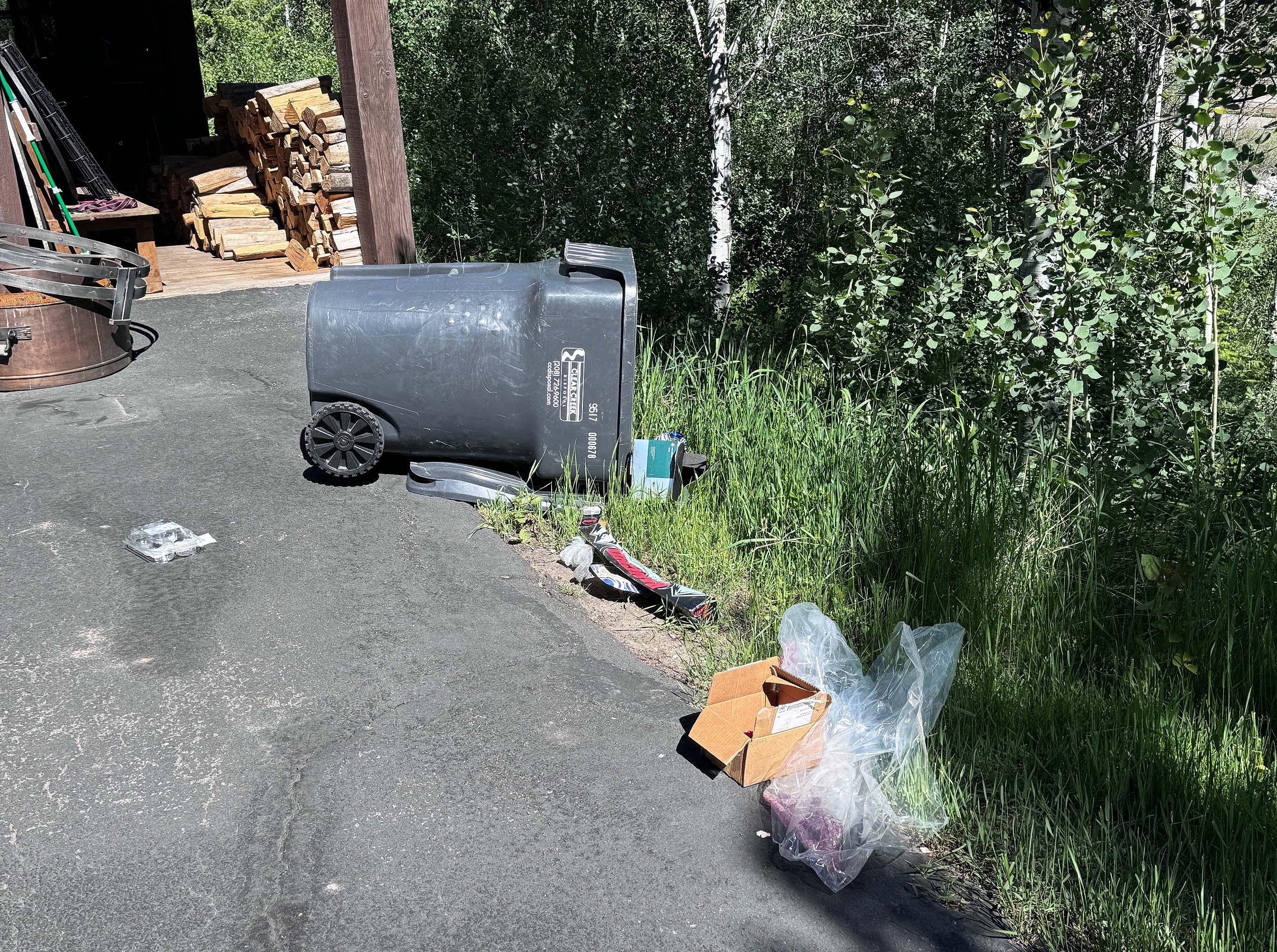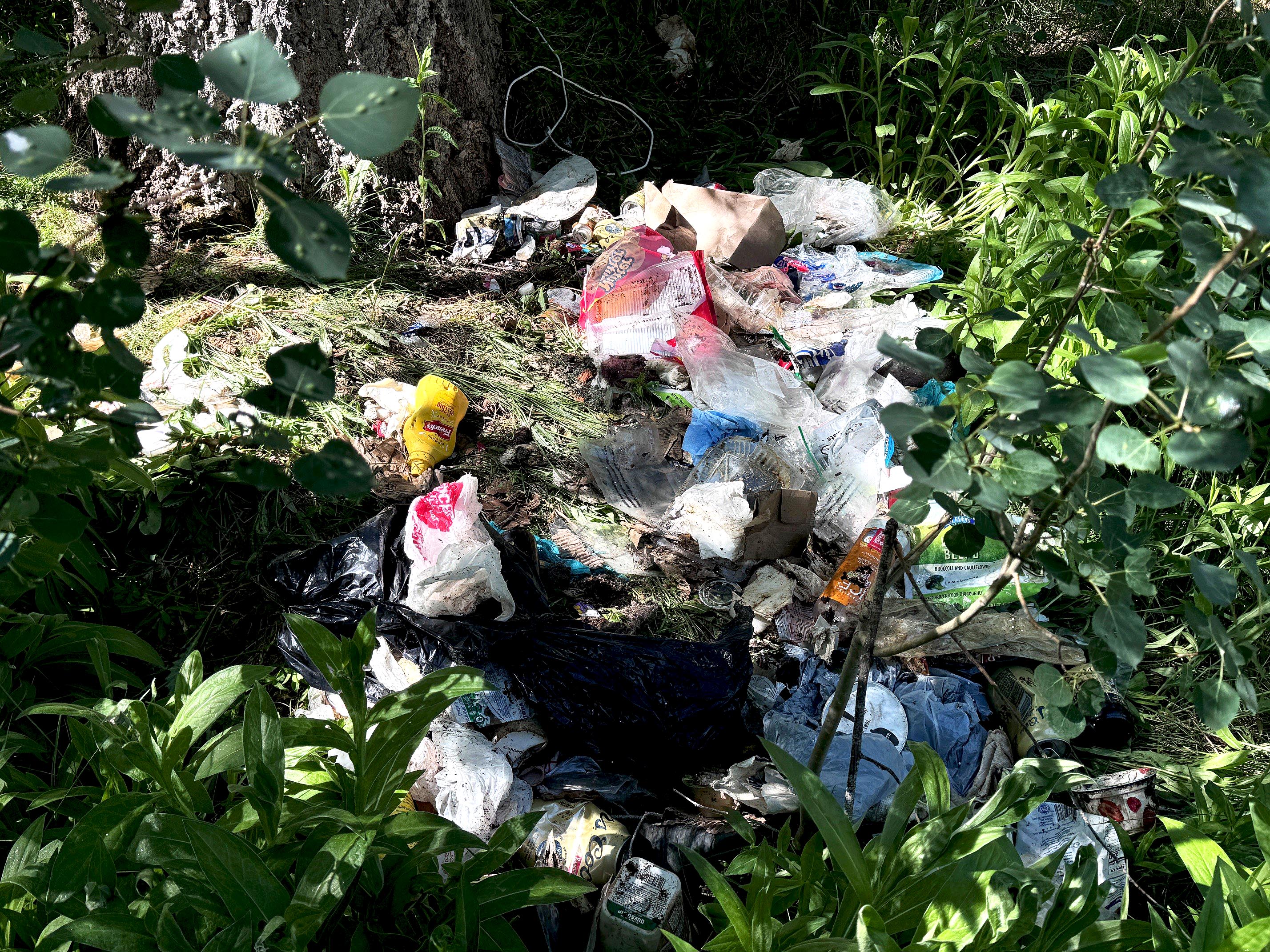A black bear sow with two cubs has been getting access to unsecured residential garbage in the Greenhorn Gulch area in the Wood River Valley, causing concerns about them quickly becoming food conditioned. First reported on Saturday, June 15, a local homeowner reported many security camera alerts from bears hanging around his house.
While at the home, the sow and her two cubs gained access to an unsecured garbage cart in the driveway of the home.



